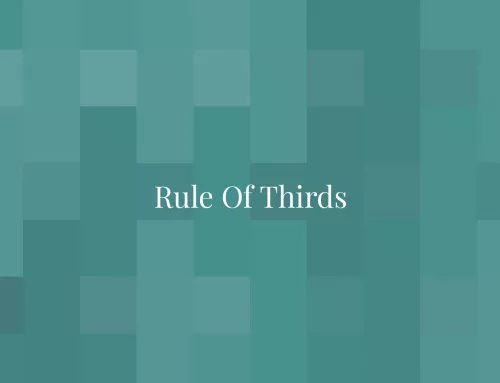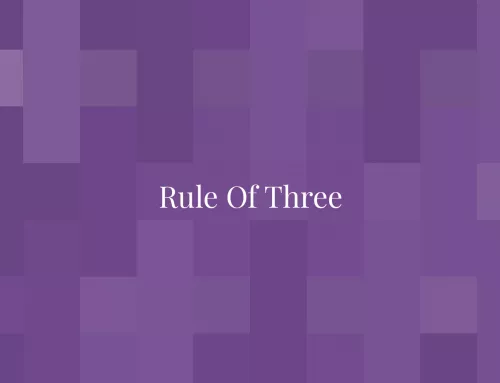The Socratic Method is a style of question orientated dialogue where a servant-leader denies his / her own knowledge of a subject to lead his / her stakeholders / students to the correct idea / answer. For consultants, the Socratic Method helps tear down old ideas and replace them with new ones. Instead of discussing how to apply a particular recommendation, an engagement team may discuss the client’s business challenges with key stakeholders and the underlying concepts. By discussing and thinking through various scenarios, guided by a set of high-value questions, the consulting team can guide the client stakeholders to embrace its recommendations and take ownership of the outcomes.
The origins
In the 5th century BC, when Socrates was teaching, subjects were not disciplined in the same way that they are now. Mathematicians explored cooking just as philosophers explored literature. The ancient boundaries between disciplines were not as clearly defined as they tend to be in modern day academia. For this reason, and many others, Socrates was able to successfully use his method in objective disciplines like mathematics just as he was able to successfully use it in subjective disciplines like philosophy. Socrates said:
There is only one good, knowledge, and one evil, ignorance
He was convinced that knowledge need not be created created from scratch, but it already exists in each and every one of us. It just needs to be brought to the surface by asking the right questions. This form of acquiring knowledge by asking and answering questions to provoke critical thinking and through cooperative dialogue among individuals is called Socratic Dialogue.
Why it works
The principle of the Socratic method involves questions, critical thinking, logical reasoning, and dialogue. This interactive technique is based on uncovering gaps in understanding, formulating own theories and / logic, and then applying reason to further one’s understanding of a topic / subject / situation. Rather than stating the underlying logic, asking a series of questions to probe and direct your audience helps them deduce the logic on their own. Your audience will better relate to a conclusion they arrived on their own than when you merely state a conclusion.
Use in business schools
The case method, also known as the casebook method, is the de facto teaching method in most business schools. The Harvard Business School case method evolved the Langdellian method of teaching law as shown in the movie The Paper Chase.
Casebook method
Pioneered by HBS faculty, the case method is now used by almost all leading business schools around the world. In the case method, business school professors chose real-life examples to teach business principles. The students are exposed to these examples through a case study – a 10-20 page document and additional background reading material the students should read prior to the case discussion.
Cold call
During the case discussion / analysis, the Professor and students jointly discuss the various aspects of the case study. Sometimes, the professor will call on a person seemingly at random and have that person deliver an overview of the case. Famously known as the cold call, this can last anywhere between a minute to 10 minutes. Some professors can ask a number of follow up questions and drag out this cold call to longer discussions. The intent of this cold call is to ensure that everyone has read the case and is well-prepared to take the cold call.
Knowledge delivery
The professor plays the role of a facilitator / coach, asking a series of Socratic questions to direct the students’ thinking after having a student summarize a case and the relevant business / management principles pertaining to the case. Professors often manipulate the facts or the business principles associated with the case to demonstrate how the outcome changes if even one underlying fact changes. Often, a rapid exchange takes place in front of the entire class, so students can practice thinking and making compelling arguments on their feet. The goal is for students to solidify their knowledge by thinking critically under pressure. This also helps students master the art of speaking to large audiences.
Additional material
Personally, I found preparing for a case analysis and the actual case discussion lively, engaging, and intellectually stimulating. Simply listening to a case can also help you. For example, HBS recently started publishing the Cold Call podcast, which distills the school’s legendary case studies into podcast form, giving listeners important takeaways they can use in their own businesses and careers. In short, business school professors use the Socratic dialogue method during the case studies to direct students’ focus on key business concepts, promote active participation, learn from peers, follow the professor’s thought process, and enjoy their learning experience.
Importance of questions
The most valuable currency of the 21st century is knowledge acquired through information. Today, almost 59% of the world’s population has access to the Internet and with it, access to information on almost all topics under the sky. Despite all the technological progress we have made, the best way to really engage with people is through open dialogue and benevolent curiosity. The underlying principle of the Socratic Method, also known as Socratic Questioning, is the practice of disciplined, thoughtful dialogue. Socrates used this questioning method to help his students explore various ideas. He also used it to determine the validity of ideas and limited the risk of falling prey to all sorts of logical fallacies.
Socratic questioning
Socratic Questioning, wherein you elicit and probe other thoughts, allows the conversation participants to develop and evaluate their thinking by making it explicit. By encouraging the participants to focus and elaborate their thinking on key topics, Socratic discussions gives participants the opportunity to develop, test and validate their ideas and notions in the context of new facts and learning. Thus, the participants can synthesize their beliefs into a more coherent and better–developed perspectives. Consequently, this method allows the participants to develop the most amount of knowledge for themselves. By critically thinking through topics and situations using a mix of techniques, such as constructive debate, analysis, cross-pollination of new ideas, and emergent facts / content, participants benefit, not only from their own thinking, but also from that of those around them.
Application areas
You can use Socratic questioning to pursue thought in many areas, such as:
- Exploring new ideas
- Uncovering assumptions
- Surfacing the latent facts / truth
- Identifying preconceived notions
- Recognizing the knowns and unknowns
- Jointly analyzing challenging concepts
- Logically deducing the consequences of certain actions,
- Etc.
Importance of listening
Most people do not listen with the intent to understand, but rather they listen with the intent to reply. A fundamental requirement for a successful Socratic Method if for both sides must be curious, courteous and courageous in exploring their truth. The person who asks questions must also actively listen to other viewpoints. Active listening does not necessarily mean reaffirming or repeating everything the other says, but rather listening on a deeper level. Reading between the lines, paying attention to body language, de-constructing phrasing and tone of voice provide additional context beyond the uttered words. The aim of the Socratic Method is to surface a person’s latent ideas into consciousness. Hence, any dialogue should start with open-ended questions to allow the participants to freely express themselves. All the parties involved in such a conversation should have the other’s best interests in mind. In reality uncovering the unknown unknown requires a much deeper understanding through dialogue. Therefore, asking the right questions can be more valuable than knowing the right answers.
Tips for consultants
The key difference between the Socratic Method and regular discussions / workshops is that the Socratic Method seeks to draw out first principles actively and systematically. The Socratic Method helps clarify your thinking and the origins of ideas (e.g. Why do I think this?). This approach also helps challenge assumptions about a topic (e.g. How do I know this is the right approach? What if the opposite were true?), search for proof (e.g. What evidence do I have to back this up?), explore alternative perspectives (e.g. What are the other options that we may not have thought about?), examine the consequences and implications (e.g. What if this is not the case and we are wrong? What are the ramificiations, if we are wrong?), and challenge the problem statement (e.g. Why did we think like that before? Were we tackling the right problem to begin with? What conclusions can we draw from our efforts so far?).
Using the Socratic Method:
- Plan the high-value questions that will provide direction to the conversation
- Give people at least 30 seconds to reflect and respond to your questions
- Acknowledge and follow up on their responses to enhance your understanding
- Ask probing questions and solicit anecdotes
- Copiously take notes and summarize the key points in writing
- Engage as many participants as you could in such discussions
- Guide participants to knowledge discovery through your probing questions
Sample clarification questions
- What do you mean by…?
- Could you explain that a different way?
- In your opinion, what’s the main issue here?
- Can you provide an example here?
- Could you expand on your point further?
Probing questions
- How can you verify or disprove this hypothesis?
- What could we expect, instead?
- In the first place, why is this so important?
- Why do you think that?
- What assumption can we draw from this question?
Reason and evidence questions
- Why do you think this is the case here?
- What sort of extra information is required here?
- Could you explain your reasoning?
- Is there a reason to doubt this evidence?
Source questions
- Is this your own idea or have you heard it somewhere else?
- Has this always been your point of view?
- Have something or someone influenced your opinion?
- What made you feel this way about the issue?




